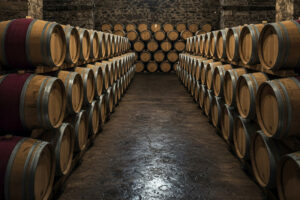The world is asking for more and more "natural" vanilla extracted from the plant and not obtained through chemical processes, but there are few crops and they cannot keep up with the demand. The result, explained an article in "Chemical & Engineering News", is that there are already serious shortages, and the price is ten times higher than a few years ago, making it the second most expensive spice in the world after saffron.
80% of natural vanilla consumed in the world, explains the article, and comes from Madagascar. However, last year there was a 50% drop in production to 1.500 tons, due to the practice of anticipating the harvest to avoid theft of the plants.
This brought the price of vanilla seeds to 225 US dollars per kilo, and the extract, which is just 2% of the seed weight, to 11.000 dollars per kilo, compared to 1.250 dollars in 2012. Demand is estimated to grow, according to the Mintel research center as in the US alone 2% of new foods and 3% of beverages launched last year were flavored with vanilla, and there are currently 18.000 products in the world that contain vanilla.
Industries have found ways to replace the natural extract with a synthetic equivalent, of which 18.000 tons are produced each year, but the growing demand for all natural products is undermining the system. Since vanilla is still produced with pollinated plants and harvested by hand. Along with small food producers, the article points out, even the "giants" have now announced plans to eliminate synthetic vanilla, starting with Nestlè in February 2015.
“When Nestlè announced they wanted to go towards only natural products, it was like a dam breaking,” explained John Leffingwell of Leffingwell Research Center. “The others would have never taken that step, but once it was taken, they had to follow”.
To try to remedy the problem vanilla Aroma production processes have been developed based on natural ingredients, such as lignin, or using GM yeast, but these ingredients do not permit writing on the label that the product contains natural vanilla, only that "it has no artificial ingredients".
There are also studies on GM varieties of the plant able to increase production, which at the moment is very low - 600 hand-fertilized buds that produce only one kilo of seeds. Despite the various attempts, said Carol McBride of the US Company Symrise, the problem remains. “We need to grow more plants”, she said, “and at the same time safeguard the sustainability of vanilla to preserve it for future generations”.
Copyright © 2000/2026
Contatti: info@winenews.it
Seguici anche su Twitter: @WineNewsIt
Seguici anche su Facebook: @winenewsit
Questo articolo è tratto dall'archivio di WineNews - Tutti i diritti riservati - Copyright © 2000/2026






































































































































































































